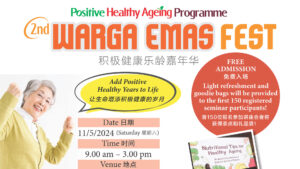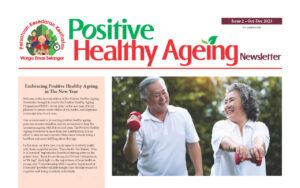By Dr. Tee E Siong
Consultant Nutritionist & Chairman, Positive Healthy Ageing Programme Malaysia
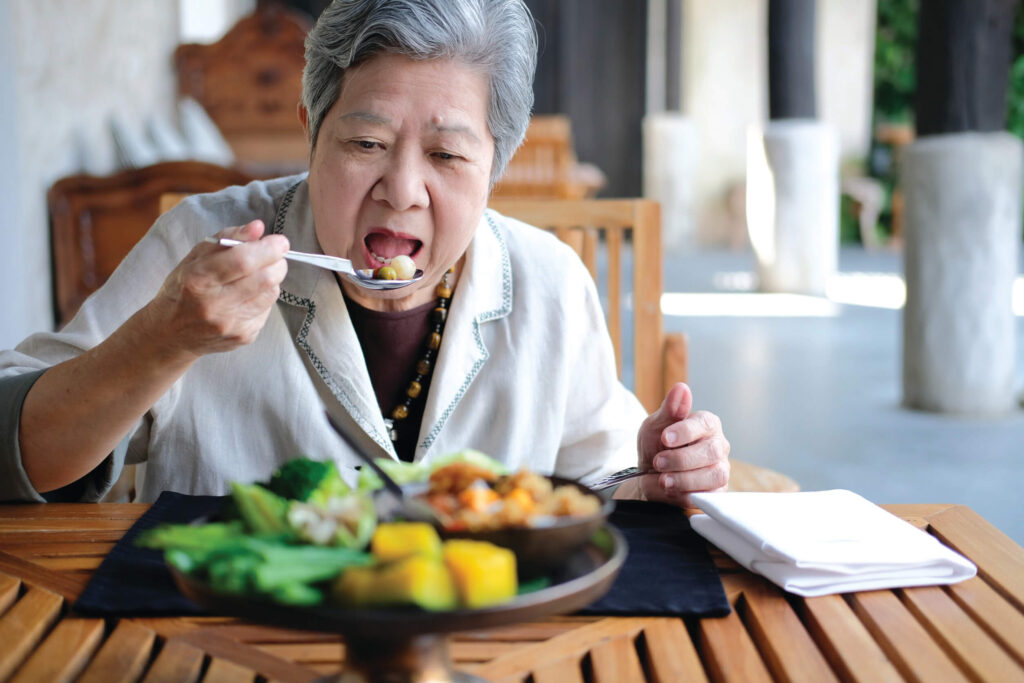
Nutrition is important at all ages, especially as we grow older. As we age, we are more prone to health issues such as reduced bone density, age-related muscle loss, weakened immune system, and the risk for certain diseases such as high blood pressure, diabetes, heart diseases can rise. By having healthy nutrition through the golden years, we can help to maximise body function, keep the immune system strong, reduce the risk of health issues or delay the onset of diseases, so as to stay healthy, energised and independent for longer.
Age-related factors may make it harder for us to eat healthy as we age
However, ageing also bring changes in our bodies that affect nutritional intake and make it challenging for us to ensure receiving optimal nutrition.
Over time, our metabolic rate slows and with a less active lifestyle, we need fewer calories than we do when we were younger. At the same time, our body tends to become less efficient at digestion and nutrients absorption due to the lower production of digestive enzyme, secretion of stomach acid and weaker muscular contraction along the digestive tract. Our appetite can also decrease with the gradually declined sense of smell and taste, especially after age 60. Reduced appetite in old age can also be the result of illness or medication. These may cause us to skip meals, and some may also have problems chewing or swallowing foods. These factors are putting us at a higher risk of not meeting the requirements for some important nutrients. The risk for dehydration is also higher as there is a diminished sensation of thirst with ageing.
In fact, three out of ten older adults in Malaysia have been found to be suffered from malnutrition. Several local studies have also shown that older adults in Malaysia are not consuming enough key nutrients such as protein, B vitamins, vitamin D, vitamin E, iron, calcium, zinc, essential fatty acids and dietary fibre. Three in ten elderlies also do not drink enough water daily.
Eating balanced and nutrient dense diet is important
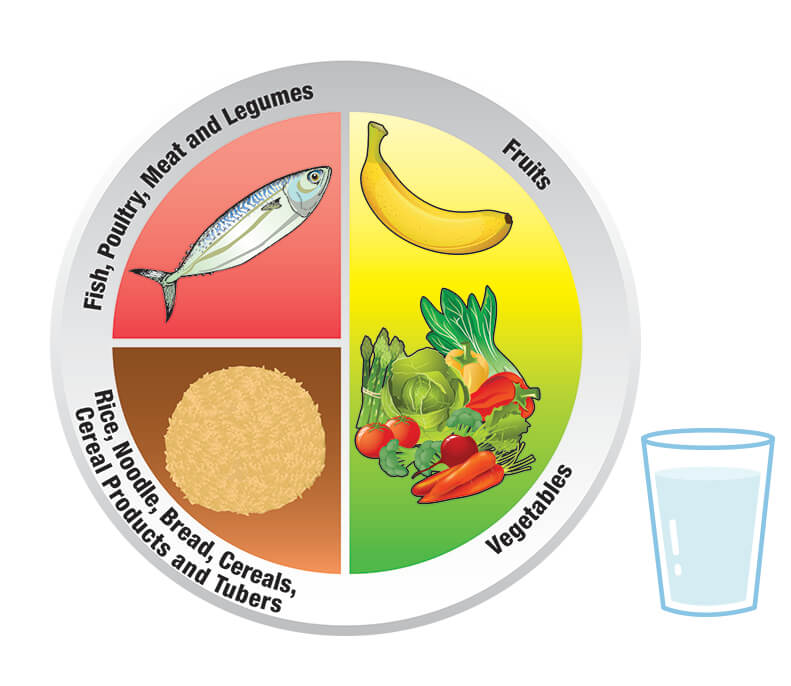
The nutritional challenges with ageing can be addressed with a healthy, balanced and nutrient-dense diet and some lifestyle changes:
- Follow Malaysian Healthy Plate ‘Quarter-Quarter-Half’ for each meal. It is any easy way to help you having a well-balanced meal with a right proportion of each food group. Here is how:
- Fill quarter plate with grains or grain products, preferably whole grainsFill quarter plate with good sources of lean protein e.g. lean poultry or meat, fishes, eggs, tofu, tempeh
- Fill half plate with fruit and vegetables
- Make plain water or milk your drink of choice
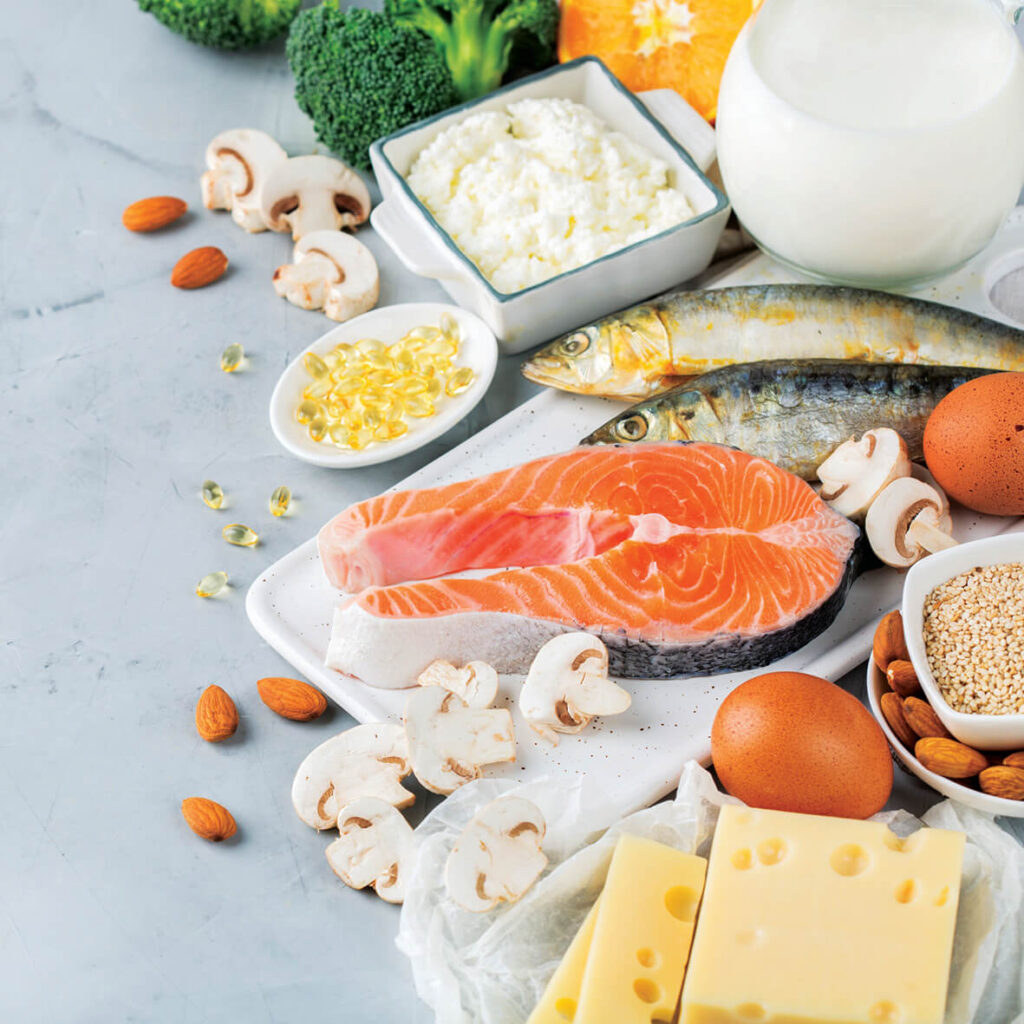
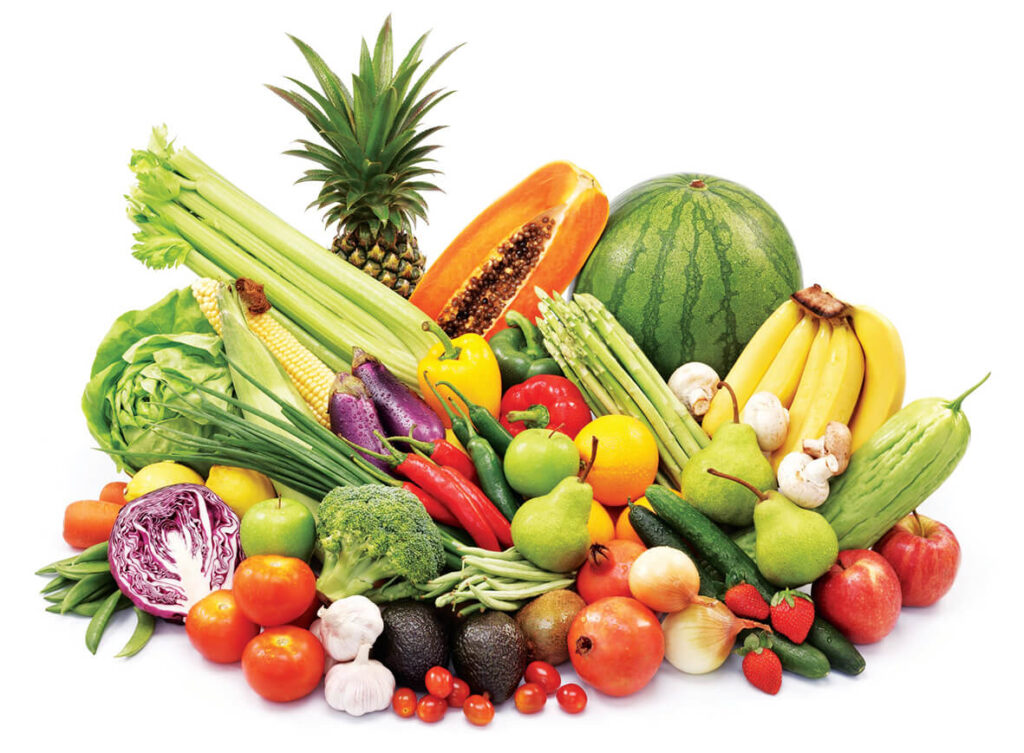
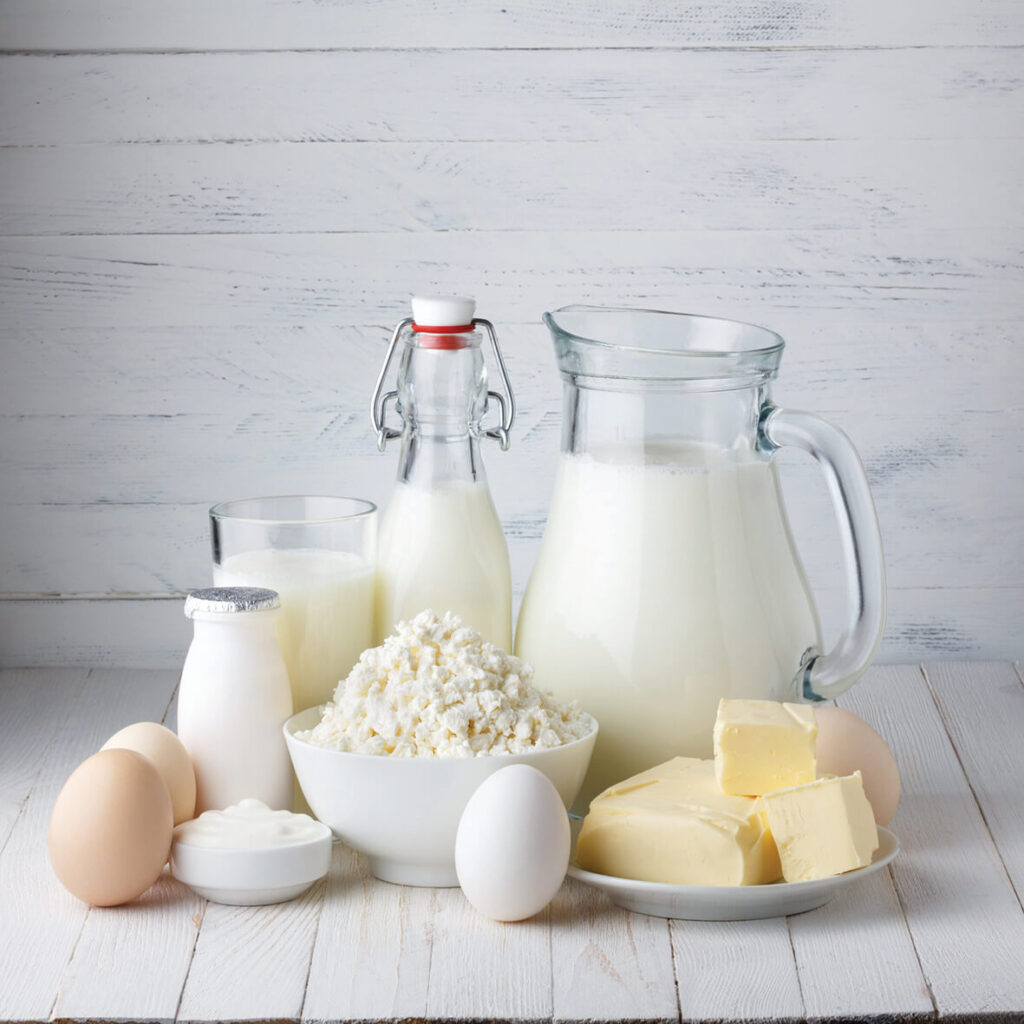
- Instead of three big meals, opt for five or six smaller meals throughout (e.g. 3 main meals, 2-3 healthy snacks) the day. Go for nutrient-dense foods containing higher vitamins, minerals and dietary fibre. This helps to ensure we get an adequate amount of essential nutrients even with smaller meals. Tips for choosing nutrient-dense foods from each food group:
- Grains or grain products. Choose more wholemeal varieties of rice, noodles, breads or other whole grains/wholegrain foods such as oat, barley, millet. They provide higher amount of dietary fibre and B vitamins.
- Meat/poultry/fish/egg/tofu/tempeh. These foods provide good quality protein that is important to help maintain our muscle mass. Include protein foods from both animal and plant sources in your meal. For animal protein, choose skinless poultry or lean cuts of meat and avoid fatty meats or preserved meats that are high in fats and sodium. Fish is an excellent option as it is an easier to digest protein than meats and poultry. Fishes such as tuna, herring, sardines, mackerel and salmon are also good sources of a type of polyunsaturated fatty acids (PUFAs) called omega-3 fatty acids, which have been shown to support cognition/memory health, eye health, heart health, immune function as well as muscle function in older adults. Fish can be consumed everyday as part of healthy diet. On the other hand, plant-based foods such as tofu and other soya-based foods, tempeh, beans, peas, and lentils are not only great sources of protein, they also provide additional nutrients, such as calcium and dietary fibre.
- Fruits and vegetables. These foods are packed with vitamins, minerals and phytonutrients. Go for variety and eat fruits and vegetables of different colours every day. Colourful fruits and vegetables also make the meals more appealing and help to improve appetite.
- Milk/Dairy products. Milk and dairy products such as yoghurt and cheese are good sources of calcium, which is important for bone health and lowering the risk of fractures. Aim to have 1-2 servings of milk or dairy products.
- Some milks are also fortified with important nutrients such as vitamin A, vitamin B complex, vitamin C, vitamin D, vitamin E, magnesium, iron, zinc, probiotics, prebiotic etc, which could help to fill the nutrient gaps in our diet. For older adults with low appetite, fortified milk can be a convenient part of daily diet and simple way to help meeting daily nutritional needs. One way to identify a fortified milk is by reading the food and nutrition label at the milk packaging. You can also consult a nutritionist or dietitian to know more about your needs of fortified milk.
- To improve appetite, enhance flavours with natural flavour enhancers, spices and herbs such as ginger, garlic, citrus juice, onion, lemongrass, cloves, star anise, mint, cinnamon, instead of salt and sugar.
- For snacks in between main meals, opt for healthier and nutrient dense snacks such as fruits, milk, steamed wholemeal bun, mung bean soup, tauhu sumbat, popia basah, tau fu fa.
- If chewing is a problem, go for finely chopped meat/soft cooked vegetables, or try different cooking methods such as soup and stew.
Healthy nutrition plays important roles in the way one age and crucial for supporting general health. While age brings about challenges to dietary intakes, with some planning and modification, we can still meet the nutritional demands to stay strong and healthy.
This educational article by Positive Healthy Ageing Programme (PHAP) is supported by an educational grant from Anlene Malaysia.

